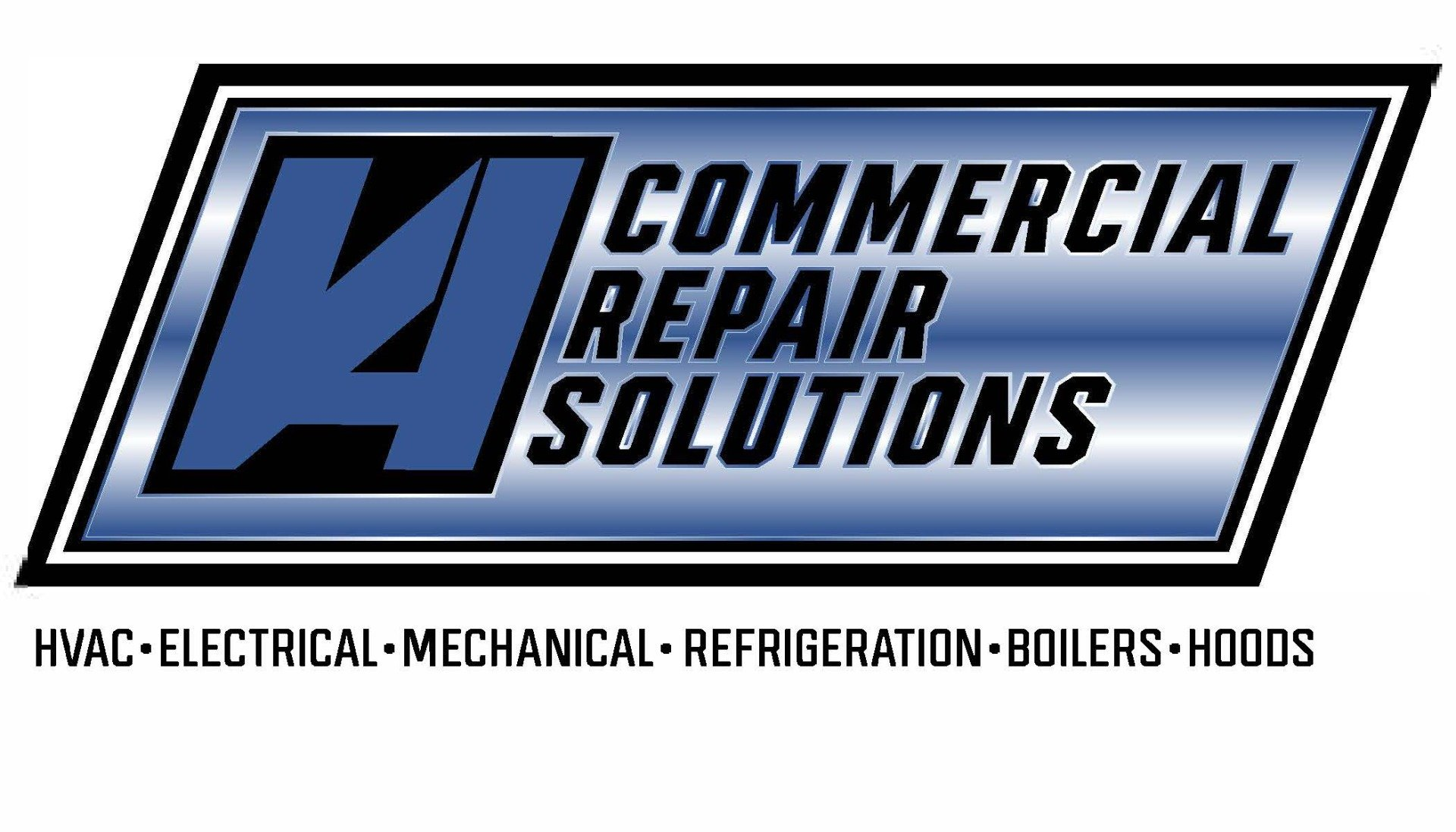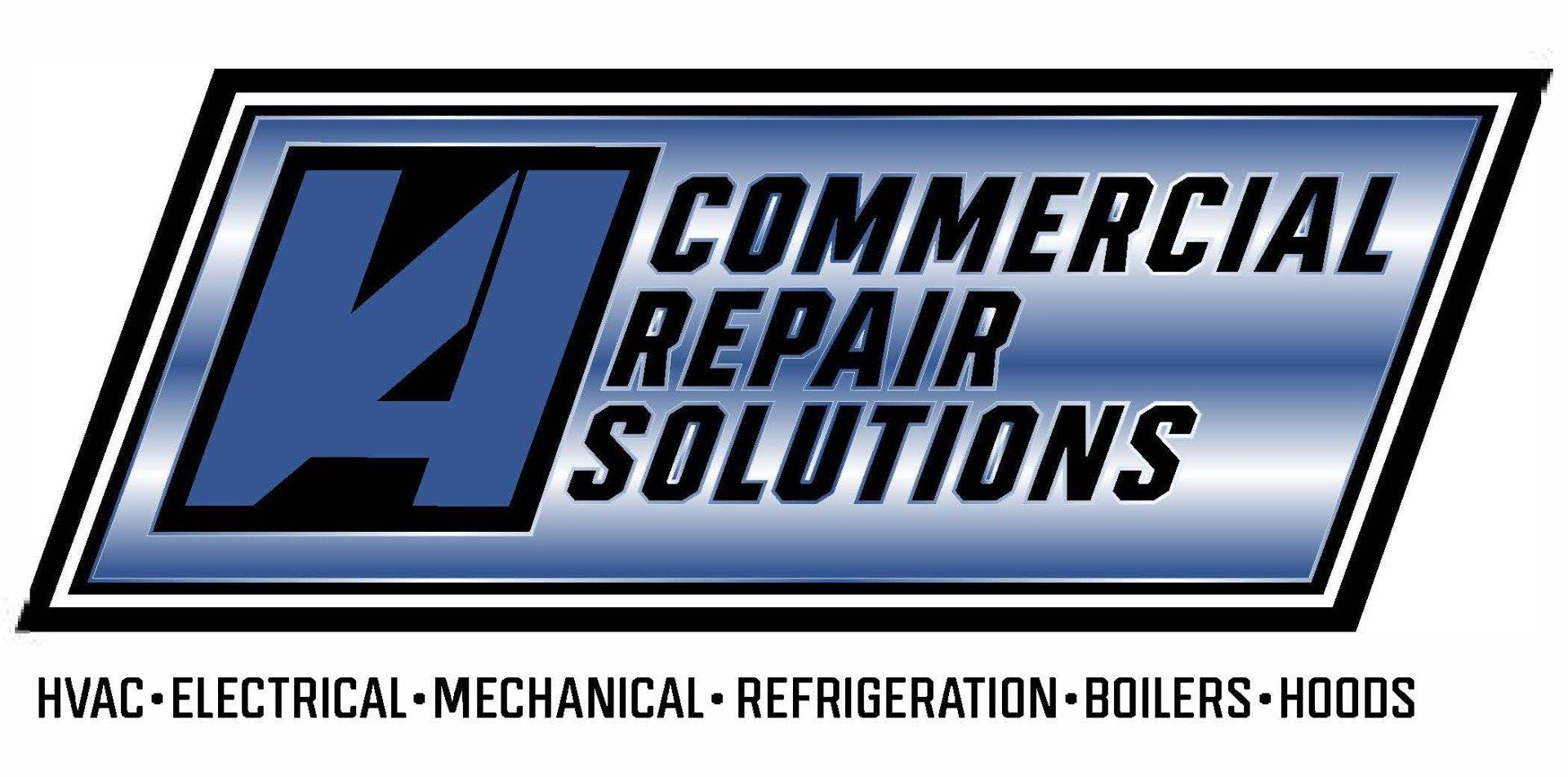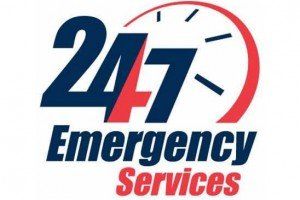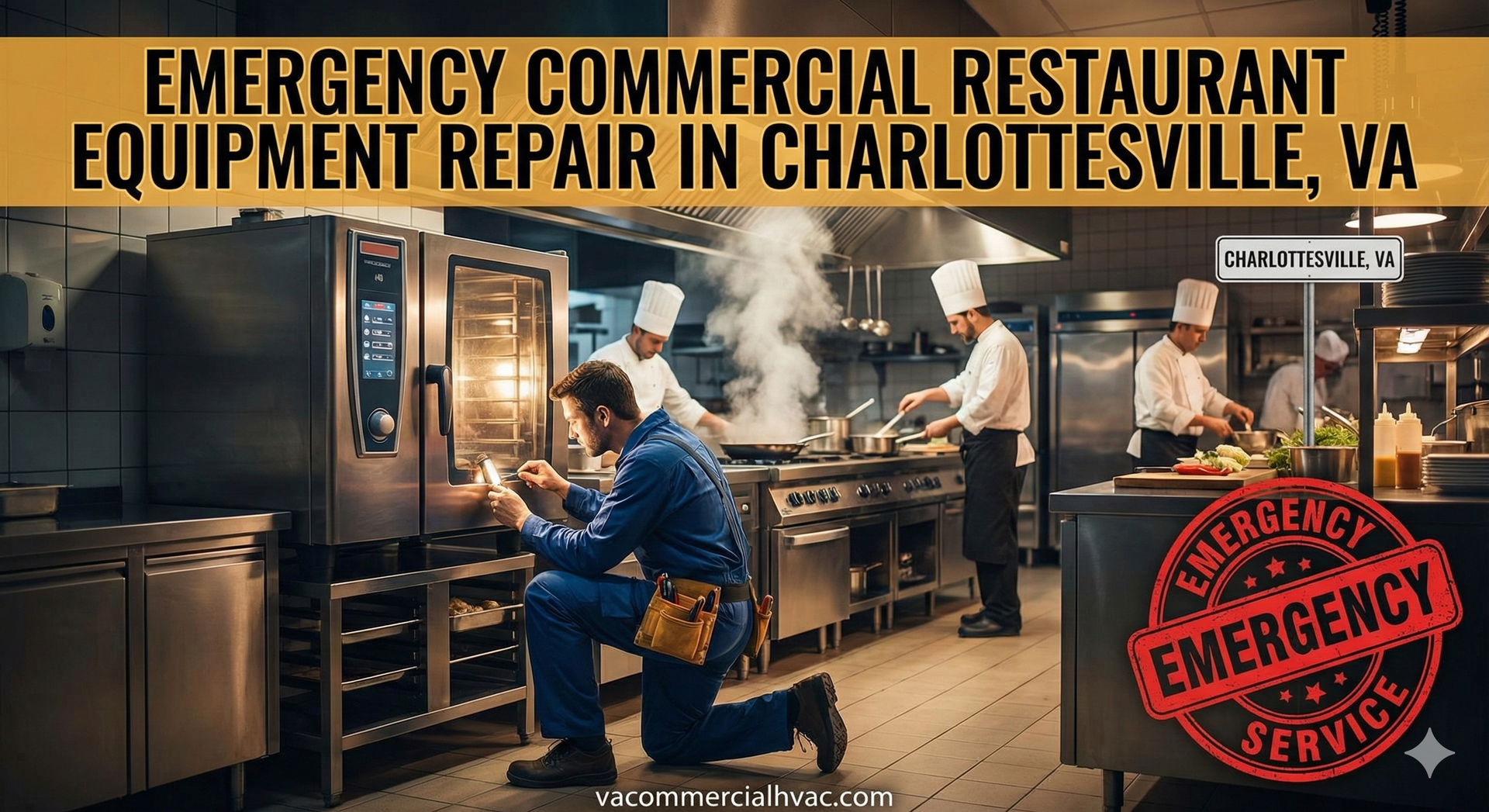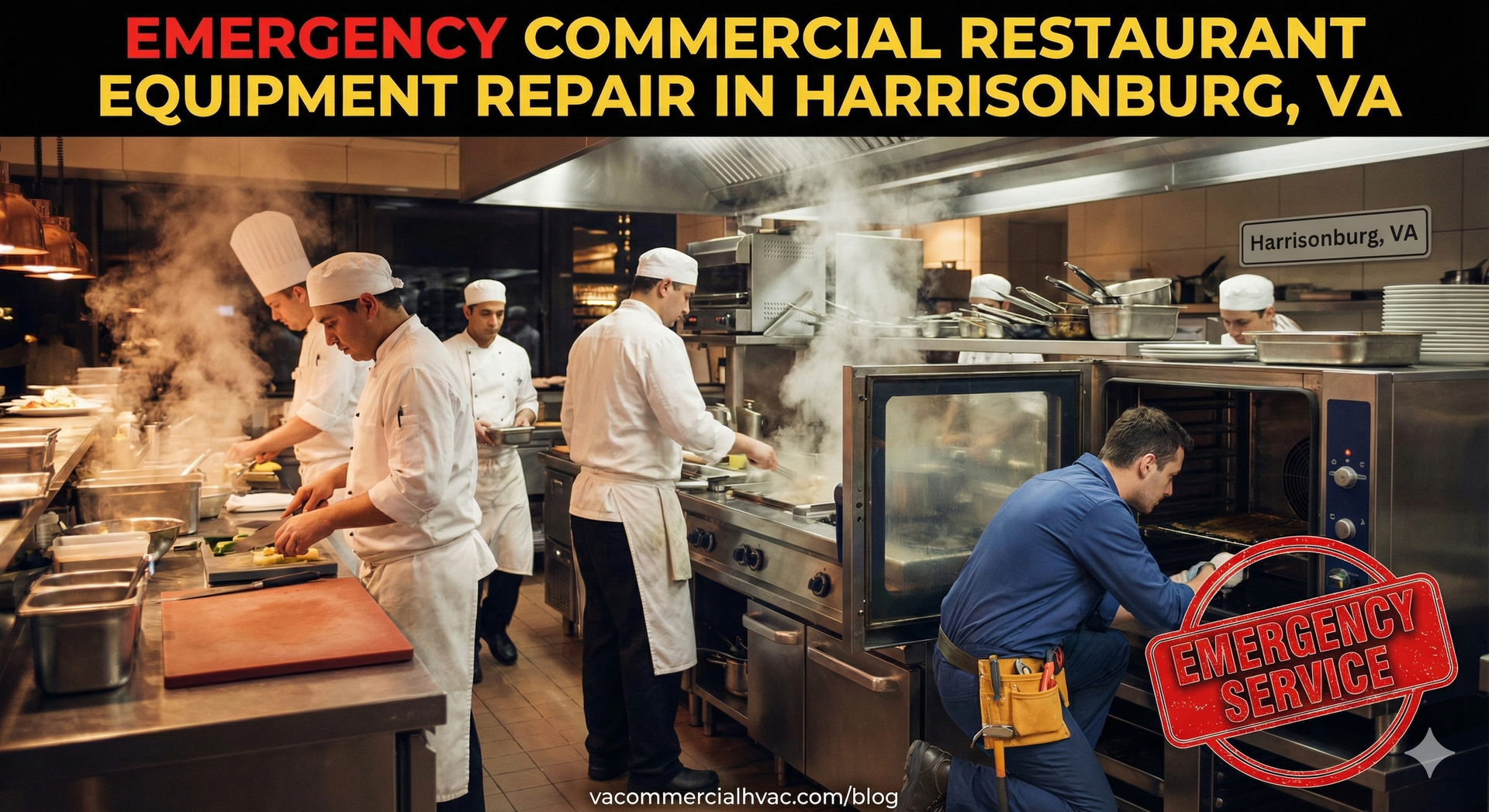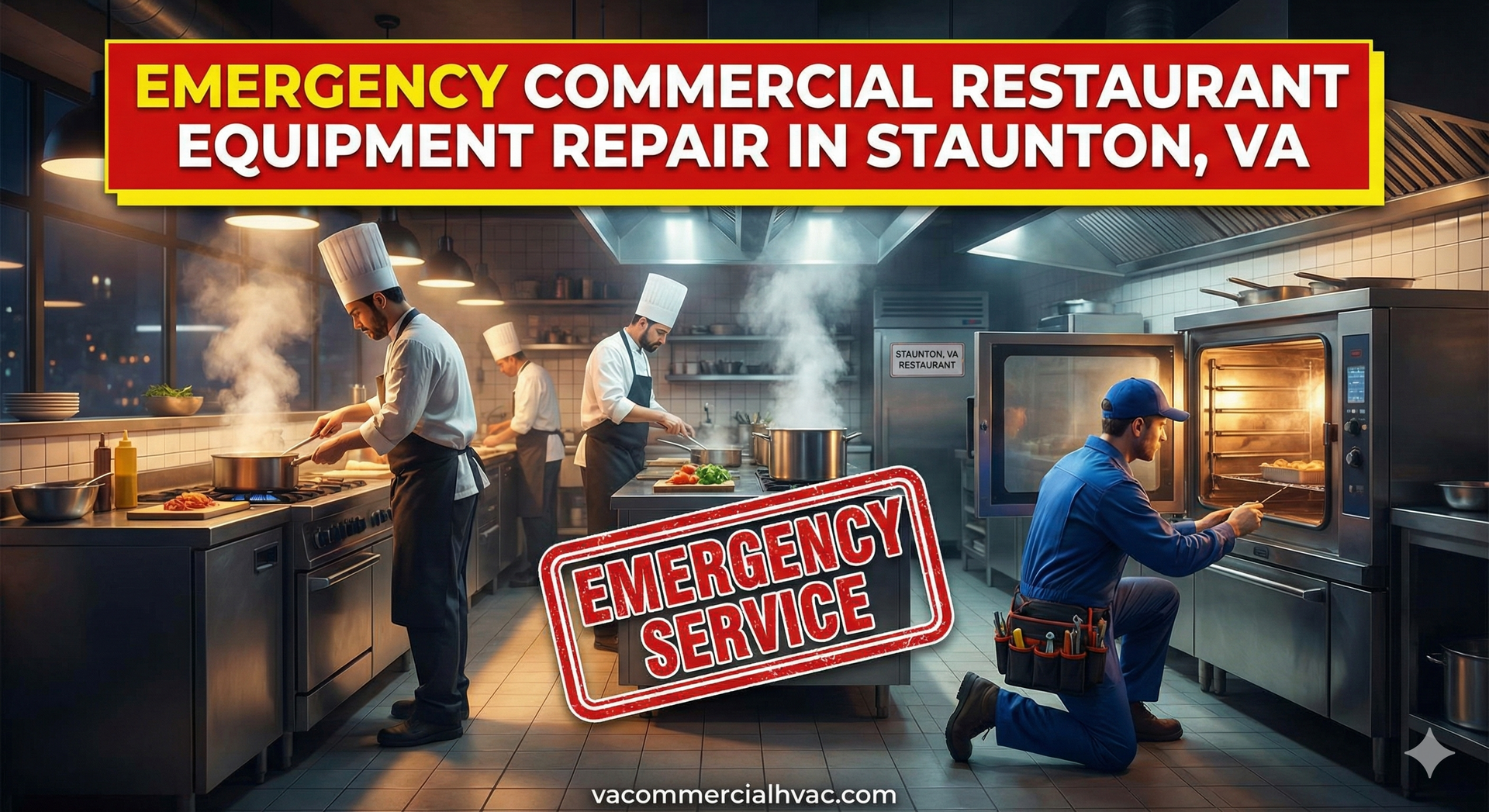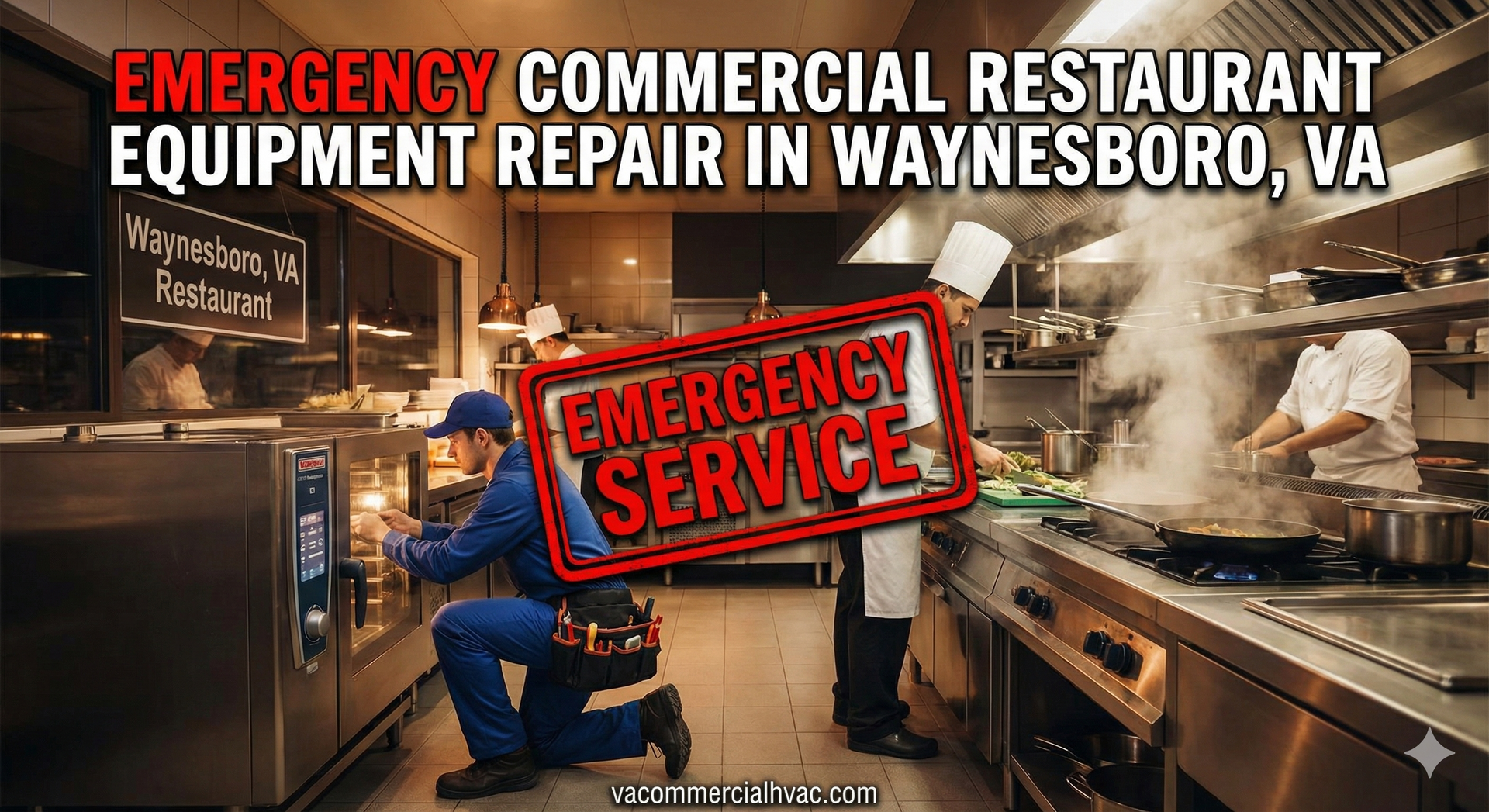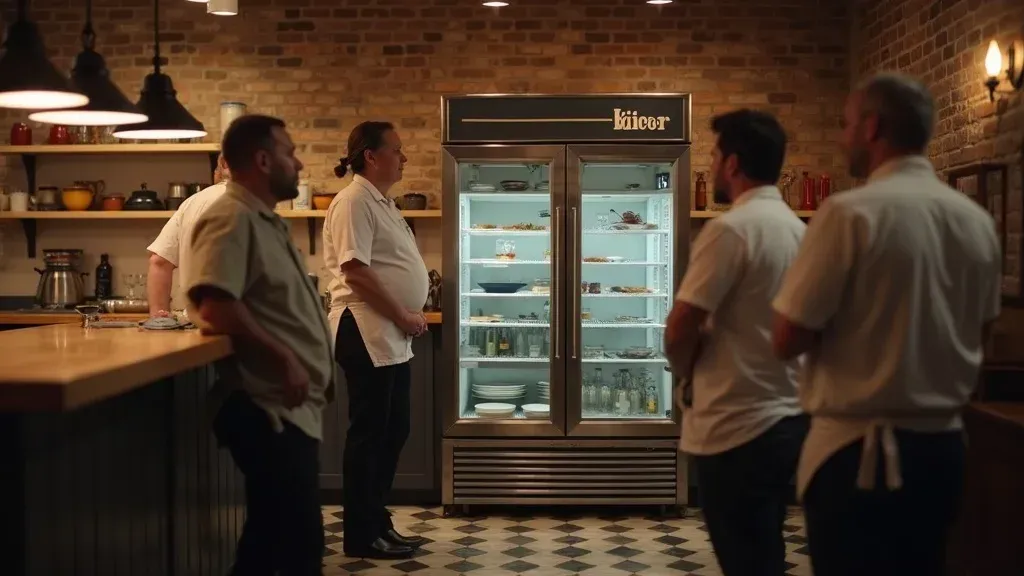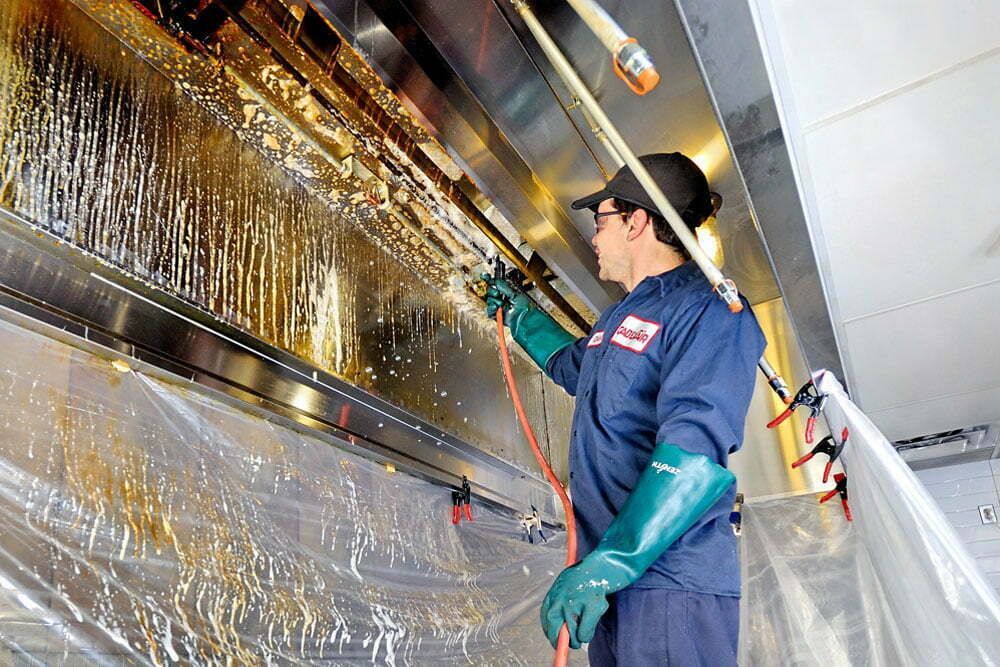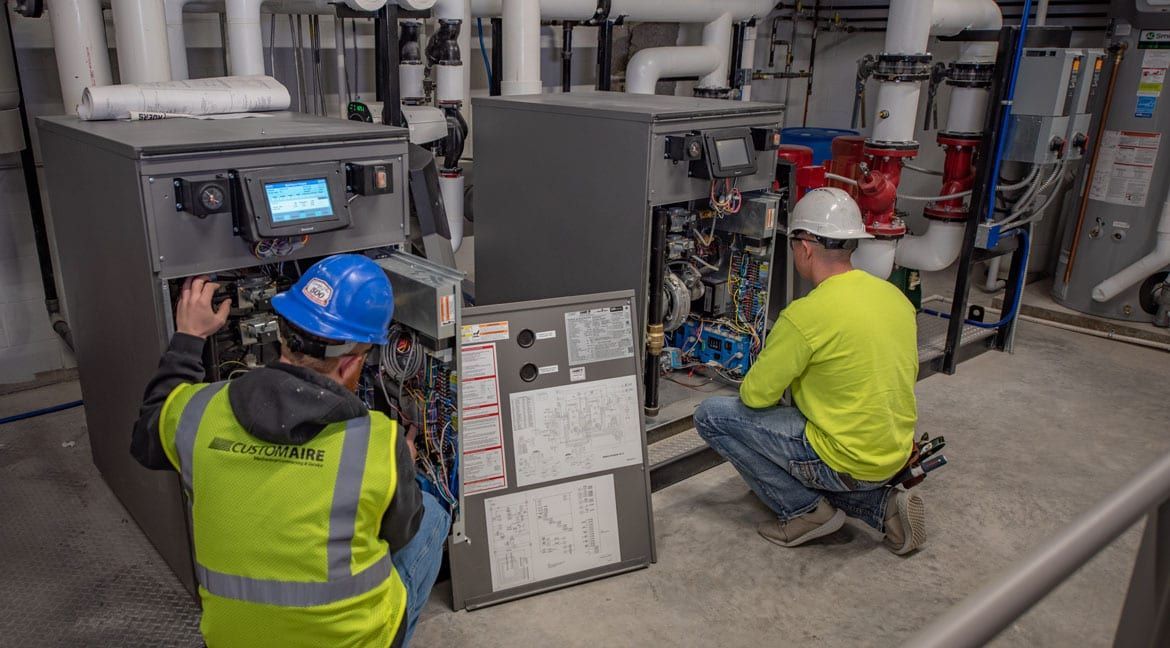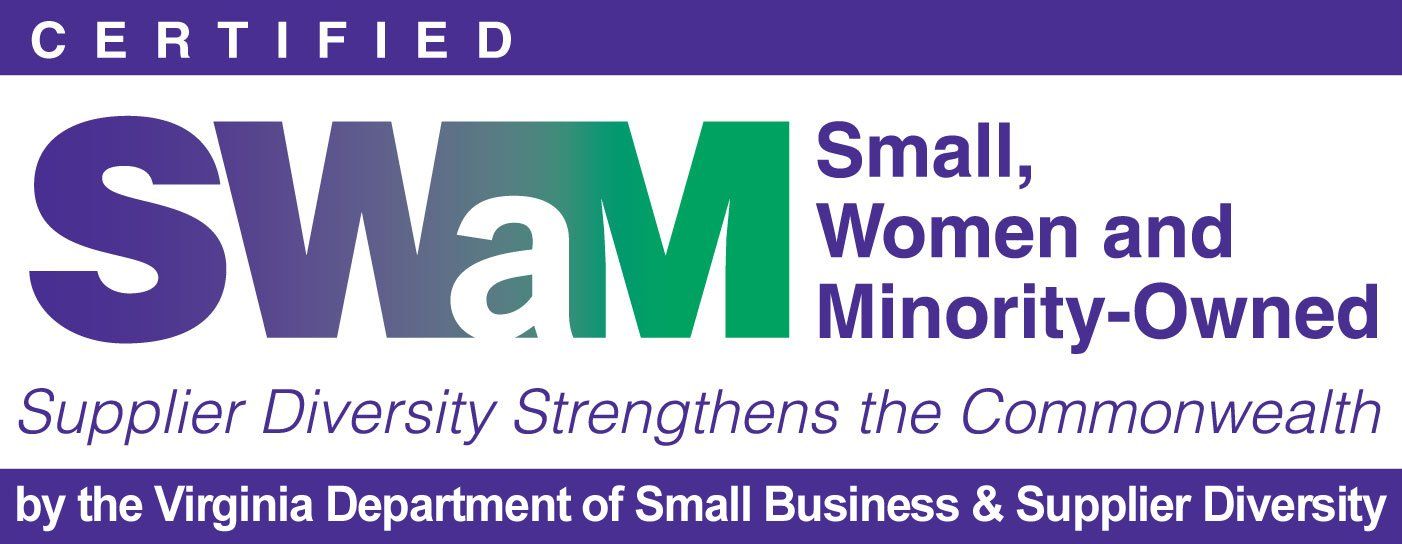Never Run Out of Ice Again: Expert Commercial Ice Maker Maintenance in Staunton, VA
Ensure uninterrupted ice supply for your Staunton business with expert commercial ice maker maintenance strategies—stop breakdowns before they start and keep your customers satisfied year-round.
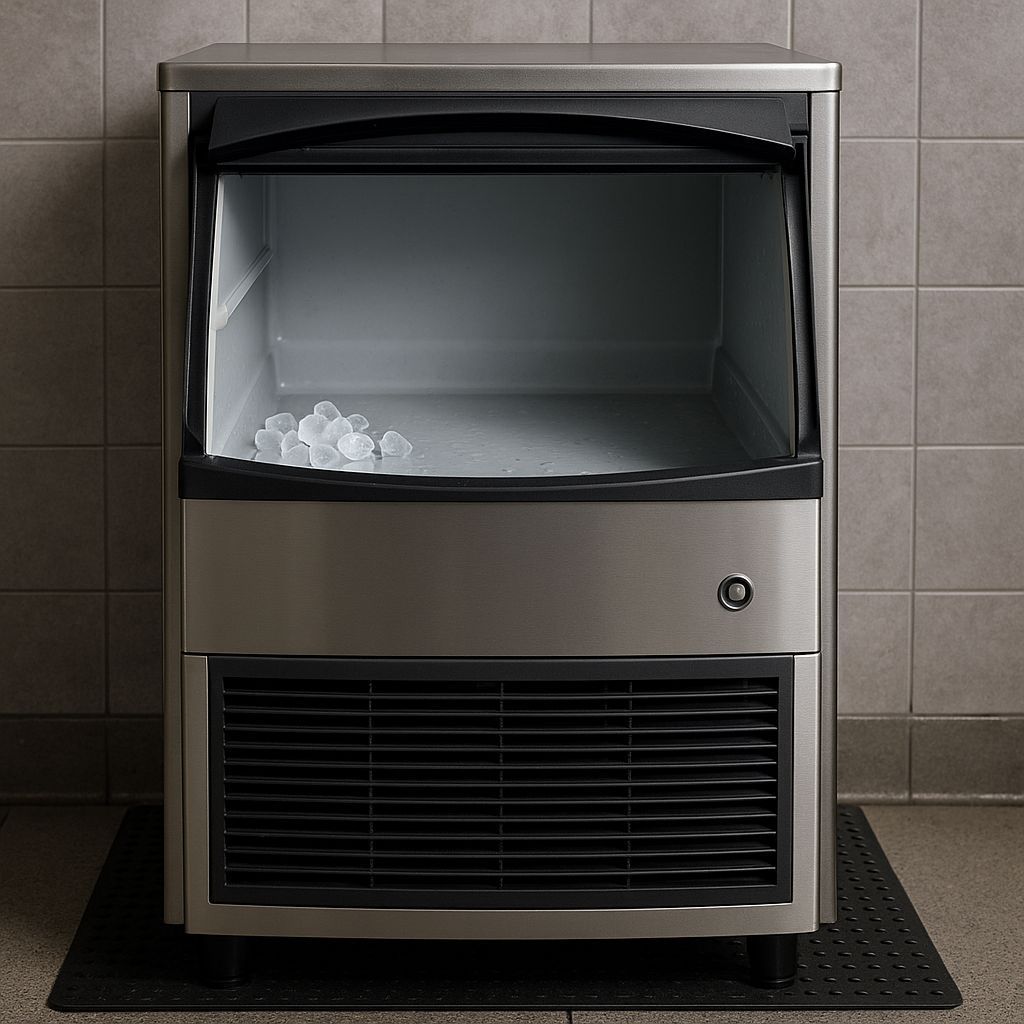
Key Takeaways
- Regular maintenance of commercial ice makers prevents costly emergency repairs and health code violations while ensuring consistent ice production during peak business periods.
- Scale buildup is the #1 cause of reduced ice production, with professional descaling typically increasing output by 20-30% in most Staunton commercial units.
- The financial impact of ice machine downtime extends beyond repair costs, with businesses losing an average of $500-$2,000 per incident in revenue.
- Virginia's climate creates unique challenges for ice machine maintenance, requiring specialized cleaning schedules to combat increased humidity and seasonal temperature fluctuations.
- Implementing a combination of daily operator checks and quarterly professional maintenance can extend your ice maker's lifespan by up to 7 years.
When Ice Makers Fail: The Hidden Costs to Your Staunton Business
Ice machine failures cost significantly more than just repair bills. For Staunton businesses—from restaurants on Richmond Avenue to healthcare facilities serving patients—ice machine downtime creates a cascade of expenses that can devastate both daily operations and long-term profitability. Professional ice maker maintenance services have become essential for business continuity, especially as Virginia's seasonal temperature fluctuations put additional strain on commercial refrigeration equipment.
The true cost of ice machine failure includes direct repair expenses, lost productivity, customer dissatisfaction, and potential health code violations. When your primary ice source fails during a summer weekend rush, the financial impact radiates through every aspect of your operation—from disappointed customers to emergency ice purchases at premium prices.
Emergency Repair Expenses That Shock Business Owners
Emergency ice machine repairs typically cost 40-60% more than scheduled maintenance visits. When technicians must drop everything to address your crisis, you'll pay premium rates for after-hours service, expedited parts shipping, and emergency response fees. A preventable $300 maintenance issue can quickly balloon into a $1,200 emergency repair when components fail catastrophically.
What makes these costs particularly frustrating is their predictability. Most emergency ice maker breakdowns show warning signs weeks before failure—reduced ice production, unusual noises, or cloudy ice that indicates scaling problems. Regular maintenance catches these issues during routine inspections, preventing the financial shock of emergency repair bills.
Revenue Losses During Peak Summer Demand
Summer heat drives ice consumption up precisely when your equipment works hardest. When machines fail during these critical periods, Staunton businesses face immediate operational crises. Restaurants cannot serve cold beverages, healthcare facilities scramble to maintain patient care protocols, and hotels face guest complaints about basic amenities.
Consider a busy Staunton restaurant during summer peak season. When ice machines fail during the lunch rush, businesses must either purchase emergency ice at 3-4 times the production cost or disappoint customers expecting cold beverages with their meals. Neither option preserves your profit margin or reputation. For hospitality businesses in Staunton's growing commercial districts, a single breakdown during a summer weekend can cost thousands in lost revenue and damage relationships with both customers and suppliers.
Health Code Violations and Regulatory Consequences
Recent Virginia health inspections have revealed widespread ice machine violations across commercial establishments. Black residue buildup, bacterial contamination from inadequate cleaning, and mold growth in water lines and storage bins represent critical violations that can trigger immediate corrective actions or even temporary closure orders.
The Virginia Department of Health classifies ice as food, subjecting ice machines to the same rigorous inspection standards as food preparation equipment. Failed inspections can result in public notices, mandatory re-inspections with associated fees, and reputation damage that extends far beyond the initial violation. Healthcare facilities face even stricter requirements through Joint Commission standards that classify ice production as high-risk utility systems requiring specialized maintenance protocols.
Customer Satisfaction Impact When the Ice Runs Out
When customers expect ice and don't get it, their entire perception of your business suffers. In the restaurant industry, studies show that beverage satisfaction dramatically influences overall dining experience ratings—and properly chilled beverages require reliable ice supply. Hotels face similar challenges, with ice availability ranking among the top amenity expectations for guests.
The modern consumer expects consistency in basic services, and ice availability falls squarely into that category. In today's review-driven marketplace, the seemingly small inconvenience of insufficient ice can trigger negative online reviews that impact your business long after the immediate problem is resolved. For Staunton businesses competing in tourism and hospitality sectors, maintaining reliable ice production directly correlates with customer retention and reputation management.
Common Ice Maker Problems You Can Prevent
Most commercial ice maker failures stem from a handful of preventable issues that proper maintenance can address before they impact your business. Understanding these common problems helps Staunton business owners recognize early warning signs and implement appropriate preventive measures before production is affected.
Scale Buildup: The Silent Production Killer
Scale buildup represents the most common and insidious threat to ice production efficiency. As mineral deposits accumulate on evaporator plates and water systems, they create an insulating barrier that prevents efficient heat transfer during the freezing process. This forces your machine to work harder while producing less ice, dramatically increasing energy consumption while reducing output. In Staunton's municipal water supply, moderate mineral content makes regular descaling essential for maintaining production capacity.
Scale Buildup: The Silent Production Killer
Scale buildup represents the most common and insidious threat to ice production efficiency. As mineral deposits accumulate on evaporator plates and water systems, they create an insulating barrier that prevents efficient heat transfer during the freezing process. This forces your machine to work harder while producing less ice, dramatically increasing energy consumption while reducing output. In Staunton's municipal water supply, moderate mineral content makes regular descaling essential for maintaining production capacity.
Professional descaling typically increases ice production by 20-30% in neglected units. The difference becomes immediately apparent in both production volume and energy consumption, with properly maintained machines producing clearer, harder ice cubes that melt more slowly. Installing water filtration systems appropriate for Staunton's specific water chemistry provides additional protection against scale accumulation between maintenance visits.
Contamination Issues That Threaten Food Safety
Ice machine contamination follows predictable scientific patterns that Staunton business owners must understand to protect their operations. Bacterial growth, biofilm formation, and mold development thrive in the damp, dark environment of poorly maintained ice machines. These contaminants not only pose health risks but also impact ice clarity, taste, and odor—all immediately noticeable to customers.
The FDA Food Code classifies ice as food, making contaminated ice machines a critical violation during health inspections. Recent inspection reports from Alexandria, Ashburn, and Sterling reveal concerning patterns of mold growth and bacterial contamination in commercial ice machines across Virginia. Systematic sanitization protocols eliminate these risks while ensuring compliance with Virginia Health Department requirements.
Mechanical Failures and Their Warning Signs
Mechanical components in commercial ice makers provide clear warning signs before catastrophic failure. Unusual noises, particularly grinding or squealing sounds from compressors or fan motors, indicate imminent problems requiring professional attention. Erratic cycling patterns—machines that start and stop frequently or run continuously without reaching temperature—point to refrigerant issues, sensor failures, or control board problems. When your commercial ice machine fails during peak business hours, the financial impact extends far beyond just repair costs.
Early detection prevents the cascade of component failures that characterize complete system breakdowns. When one part fails, it typically places additional stress on related components, creating a domino effect of mechanical problems. Regular inspection of bearings, motors, and moving parts identifies wear patterns before they impact performance or cause secondary damage to more expensive components.
Water Supply Problems That Reduce Ice Quality
Water quality directly impacts both ice production and equipment longevity. Staunton's water supply fluctuates seasonally in both mineral content and treatment chemical levels, affecting ice clarity, taste, and production efficiency. Improper water pressure—either too high or too low—creates mechanical stress on solenoid valves and water distribution systems, leading to uneven freezing patterns and reduced production volume.
Comprehensive water system maintenance includes cleaning or replacing filters, inspecting water inlet valves, and testing flow rates to ensure optimal performance. For businesses in areas with particularly challenging water conditions, specialized filtration systems can address specific contaminants and mineral content issues. These targeted solutions protect both ice quality and equipment components from premature failure.
Professional Maintenance: Your Best Defense Against Breakdowns
Professional ice machine maintenance combines technical expertise, specialized equipment, and systematic protocols that extend far beyond basic cleaning. Certified technicians bring scientific understanding of refrigeration systems, water chemistry, and mechanical diagnostics to every service visit, identifying potential problems before they impact your business operations.
The Complete Maintenance Process
A comprehensive commercial ice maker maintenance visit includes multiple specialized processes that address every system component. Technicians begin with complete disassembly of water contact surfaces, removing scale with food-safe chemicals specifically formulated for ice production equipment. This descaling process restores heat transfer efficiency across evaporator plates and water systems. The maintenance continues with sanitization protocols that eliminate biofilm buildup and bacterial contamination using EPA-approved sanitizers that leave no harmful residues.
Optimal Maintenance Schedule for Staunton's Climate
Staunton's seasonal climate patterns create unique challenges for ice machine maintenance scheduling. Summer humidity levels accelerate mold and bacterial growth while increasing machine stress through higher ambient temperatures and increased production demands. Winter brings its own challenges with fluctuating temperature patterns that affect condenser efficiency and overall system performance.
Most Staunton commercial operations benefit from quarterly professional maintenance visits, with additional attention during seasonal transitions. This schedule aligns maintenance intensity with environmental risk factors while ensuring consistent performance during peak demand periods. Healthcare facilities and high-volume food service operations often implement more frequent bi-monthly schedules to address their enhanced regulatory requirements and operational demands.
Critical Components That Need Regular Attention
Effective maintenance focuses special attention on high-risk components that impact both production and food safety. Evaporator plates require precise cleaning procedures that remove scale without damaging delicate surfaces. Water distribution systems—including tubes, nozzles, and curtains—need thorough sanitization to prevent biofilm formation. Condenser coils demand regular cleaning to maintain heat rejection capacity, particularly in kitchen environments where airborne grease particles accelerate buildup and reduce efficiency. Neglecting any single component can trigger system-wide performance issues that compromise ice production precisely when you need it most.
DIY vs. Professional Maintenance: What You Need to Know
Effective ice machine maintenance requires a balanced approach combining daily operator attention with professional expertise. While some maintenance tasks fall within the capabilities of business owners and staff, others require specialized tools, chemicals, and technical knowledge that only certified technicians possess. Understanding this distinction helps Staunton businesses develop cost-effective maintenance strategies that protect equipment investment without unnecessary expense.
The most successful maintenance programs implement a tiered approach with clearly defined responsibilities. Daily and weekly tasks become part of operational routines, while quarterly professional service addresses more complex systems and preventive maintenance requirements. This partnership approach maximizes equipment reliability while controlling maintenance costs through appropriate task delegation.
Daily Cleaning Tasks Business Owners Should Handle
- Exterior surface sanitization with food-safe cleaners to prevent cross-contamination
- Ice scoop cleaning and proper storage outside the bin to prevent handling contamination
- Visual inspection of ice quality for clarity, shape, and proper formation
- Bin door and gasket cleaning to prevent mold formation and ensure proper sealing
- Production volume monitoring to detect early performance decline
These simple daily checks take less than five minutes but provide early warning of developing problems. Staff should document any changes in ice appearance, production volume, or machine sounds that might indicate developing issues. This documentation creates valuable diagnostic information for service technicians and helps establish performance baselines that identify gradual decline before it affects operations.
Weekly Maintenance Checklist
Weekly maintenance builds upon daily tasks with more thorough cleaning and system checks. Remove and sanitize all ice from the storage bin at least weekly, using the opportunity to inspect bin surfaces for early signs of mold or scale. Clean air filters on self-contained units to maintain proper airflow and prevent condenser overheating. Check water filtration systems for pressure drops or visible contamination that might indicate filter replacement is needed.
In Staunton's climate, particular attention to condensate drains prevents the overflow problems that commonly trigger emergency service calls. Bacterial growth in drain lines can cause blockages that lead to water damage and safety hazards. Simple drain sanitization products designed specifically for ice machines prevent these blockages when applied during weekly maintenance.
When to Call the Professionals
Certain maintenance tasks require professional expertise and should never be attempted by untrained personnel. Refrigeration system service, including refrigerant handling, falls under EPA regulations requiring specialized certification. Evaporator cleaning involves chemicals and procedures that, if performed incorrectly, can damage expensive components or leave harmful residues. Complete system sanitization requires disassembly and precise cleaning protocols that ensure food safety while protecting sensitive mechanical components.
Immediate professional assistance becomes necessary when machines display certain critical warning signs. Significant production decreases, visible mold inside the machine, unusual noises, or ice that tastes or smells unpleasant indicate problems requiring expert intervention. Water leaks, particularly those originating from internal components rather than external connections, often signal developing issues that will worsen without professional attention.
Tools and Supplies for Basic Maintenance
- Food-grade sanitizer specifically formulated for ice machines (not general cleaning products)
- Soft brushes designed for ice machine surfaces that won't scratch components
- Clean microfiber cloths that don't leave residue or fibers
- Dedicated ice scoops and holders that prevent cross-contamination
- Maintenance log to track cleaning activities and production changes
Staunton businesses should avoid household cleaning products that leave residues or contain fragrances that can transfer to ice. Many commercial kitchen sanitizers contain chemicals inappropriate for ice machine surfaces, potentially damaging gaskets and plastic components while leaving behind tastes and odors that affect beverage quality. Manufacturer-approved cleaning solutions provide the proper formulations for both effectiveness and food safety.
How to Choose a Reliable Ice Machine Service in Staunton
Selecting the right service provider establishes a critical partnership that protects your equipment investment and business operations. The best maintenance relationships combine technical expertise with responsive service and transparent pricing. When evaluating potential service providers, consider both technical qualifications and business practices that impact your overall satisfaction and equipment reliability.
Certifications and Training to Look For
Qualified ice machine technicians hold multiple certifications that verify their expertise and regulatory compliance. EPA Section 608 certification is legally required for anyone handling refrigerants and ensures proper environmental protocols. Manufacturer-specific training demonstrates familiarity with your particular equipment models and access to specialized parts and service information. NAFEM (North American Food Equipment Manufacturers) certification indicates broader knowledge of commercial kitchen equipment and integration challenges.
In addition to formal certifications, effective technicians demonstrate understanding of local water conditions and climate factors affecting Staunton businesses. Their recommendations should address specific regional challenges rather than applying generic maintenance schedules that might prove inadequate for Virginia's seasonal humidity patterns and water chemistry.
Response Time Guarantees
When ice production stops, business disruption begins immediately. Service providers should offer clearly defined response time guarantees that align with your operational needs. For high-volume restaurant operations, same-day emergency service may prove essential, while facilities with backup ice sources might accept next-day response in exchange for more favorable service rates. The best providers offer tiered response options with transparent pricing for each service level.
Evaluate potential providers based on their demonstrated ability to meet emergency needs even during peak demand periods. Summer heat waves create simultaneous failures across multiple clients, testing service capacity and prioritization systems. Providers with adequate staffing and parts inventory maintain consistent response times even during these challenging periods.
Service Contract Options That Save Money
Preventive maintenance contracts typically provide the best combination of cost control and equipment reliability. These agreements schedule maintenance visits at appropriate intervals while providing priority emergency response and preferential pricing when unexpected issues arise. The most valuable contracts include parts discounts, guaranteed response times, and systematic documentation that supports health department compliance requirements.
When comparing contract options, look beyond the base price to understand exactly what services are included and excluded. Some contracts cover only basic cleaning while charging additionally for descaling or parts replacement. Others provide comprehensive coverage that eliminates unexpected expenses through the contract term. The best value typically comes from contracts aligning maintenance intensity with your specific equipment type, water conditions, and usage patterns.
The ROI of Regular Ice Maker Maintenance
For Staunton businesses managing tight operational budgets, maintenance expenses must demonstrate clear return on investment. The financial case for professional ice machine maintenance becomes compelling when analyzing both direct and indirect cost impacts. Properly maintained equipment delivers measurable benefits in energy efficiency, component longevity, and production reliability that typically return 3-5 times the maintenance investment over the equipment lifecycle. When your commercial ice machine fails during peak business hours, the financial impact extends far beyond immediate repair costs.
Extended Equipment Lifespan: Years Added to Your Investment
Commercial ice makers represent significant capital investments, with quality equipment costing between $2,500 and $10,000 depending on production capacity and features. Regular maintenance extends operational lifespan by 5-7 years beyond manufacturer expectations for unmaintained units. This extended service life effectively reduces your annual equipment cost by 40-60% when calculated across the total ownership period. Virginia restaurant health inspections are failing at alarming rates due to ice machine violations, highlighting the importance of regular upkeep.
Component-specific maintenance provides particularly strong returns for expensive subsystems. Professional condenser cleaning prevents compressor failures that typically cost $1,200-$2,000 to repair. Proper water system maintenance prevents scale-related heat exchanger failures that often render older machines economically unrepairable. These preventive interventions preserve your capital investment while deferring replacement costs for years beyond normal expectations.
Energy Savings Calculations
Scale buildup of just 1/8 inch on heat transfer surfaces increases energy consumption by approximately 40% while reducing ice production capacity. Refrigeration systems operating with dirty condensers consume 30-35% more electricity than properly maintained units. For a typical commercial ice maker, this translates to $300-$500 in unnecessary annual energy costs that maintenance eliminates.
Water efficiency improves similarly with proper maintenance. Scale-restricted water systems waste significant water through incomplete freezing cycles and inefficient rinsing. Properly adjusted and maintained machines optimize water usage while producing more ice from the same utility inputs. When combined with energy savings, the utility cost reduction alone often covers the entire cost of professional maintenance.
Breakdown Prevention Statistics
Statistical analysis of equipment failure patterns reveals that professionally maintained ice machines experience 80% fewer emergency breakdowns than unmaintained units. This dramatic reliability improvement eliminates both direct repair costs and the associated business disruption expenses. For restaurants and hospitality businesses operating on thin margins, this operational stability often represents the difference between profitability and loss during peak revenue periods when ice demands reach their highest levels.
Your Action Plan for Ice Machine Reliability
Creating an effective ice machine maintenance strategy requires a systematic approach that combines professional expertise with appropriate in-house procedures. Start by establishing a complete maintenance history for your equipment, including age, model specifications, and any recurring issues. Schedule a professional assessment to identify current condition and maintenance priorities specific to your equipment and usage patterns. Implement daily and weekly cleaning protocols using proper tools and food-safe chemicals, while maintaining detailed logs of both routine maintenance and production observations. Partner with a qualified service provider offering preventive maintenance agreements aligned with your specific business needs and budget constraints. Finally, develop contingency plans for ice sourcing during potential emergencies to protect operations during unexpected equipment issues or maintenance procedures.
Frequently Asked Questions
Commercial ice maker maintenance generates common questions from Staunton business owners seeking to optimize their equipment performance while controlling costs. These answers address the most frequent concerns while providing practical guidance for specific operational challenges.
How often should I schedule professional maintenance for my commercial ice maker?
Most Staunton businesses should schedule professional maintenance quarterly (every three months) to address seasonal challenges and maintain optimal production. Restaurants, bars, and healthcare facilities with high-volume requirements or critical dependencies often benefit from bi-monthly service, especially during summer months when machines work hardest. Businesses with water filtration systems and consistent daily maintenance protocols may extend to semi-annual professional service in some cases, though this requires careful production monitoring to ensure performance doesn't degrade between visits.
What are the signs my ice maker needs immediate professional attention?
Seek immediate professional service if your ice production decreases by more than 20% from normal levels, as this indicates developing problems that will worsen rapidly. Unusual noises—particularly grinding, squealing, or knocking sounds—signal mechanical issues requiring expert diagnosis. Ice that appears cloudy, tastes unusual, or forms in irregular shapes indicates scaling or freezing system problems that affect both quality and production efficiency.
Other urgent warning signs include water leakage, visible mold or slime inside the machine, ice that melts unusually quickly, or machines that cycle on and off repeatedly without completing normal production cycles. These symptoms typically indicate problems that will escalate to complete failure without professional intervention.
Can regular maintenance improve my ice quality and production volume?
Regular maintenance typically increases production volume by 20-30% in machines that haven't received proper care, while simultaneously improving ice clarity, hardness, and sensory qualities. Scale removal restores heat transfer efficiency, allowing faster freezing cycles and increased daily production capacity. Sanitization eliminates biofilm and bacterial contamination that affect taste and odor while ensuring food safety compliance.
Beyond these immediate benefits, regular maintenance prevents the gradual performance degradation that often goes unnoticed until reaching critical levels. Many businesses discover their machines had been operating at 60-70% of designed capacity for months before professional service restored proper functionality. This "production creep" represents costly inefficiency that proper maintenance eliminates.
What should I do if my ice maker stops working during a busy service?
When ice makers fail during peak business periods, implement your emergency response plan immediately. Contact your service provider's emergency line while simultaneously sourcing emergency ice from commercial suppliers or partner businesses. Preserve any remaining ice by minimizing bin door openings and restricting ice use to essential needs only. Check electrical connections, water supply valves, and power switches to identify simple issues you might resolve immediately. Document symptoms precisely—including any unusual sounds, error codes, or production changes leading up to the failure—to help technicians diagnose problems more efficiently upon arrival. For more information on the financial impact of such failures, consider reading about the financial impact extends during peak business hours.
How much does professional ice maker maintenance cost in Staunton?
Standard quarterly maintenance service in Staunton typically costs between $200-$350 per visit for most commercial ice makers, with specific pricing depending on machine size, type, and condition. Maintenance contracts often reduce this cost by 15-20% while providing additional benefits like priority emergency service and parts discounts. Initial maintenance for long-neglected machines may cost more due to extensive scale removal and sanitization requirements, but subsequent visits become more affordable once regular maintenance patterns are established. When your commercial ice machine fails during peak business hours, the financial impact extends far beyond just repair costs.
When evaluating maintenance costs, consider them against the average $1,200-$2,000 expense of emergency repairs and associated business disruption. Preventive maintenance typically costs less than 25% of emergency service when calculated across the equipment lifecycle, while providing additional benefits in production efficiency, energy savings, and extended equipment lifespan.
